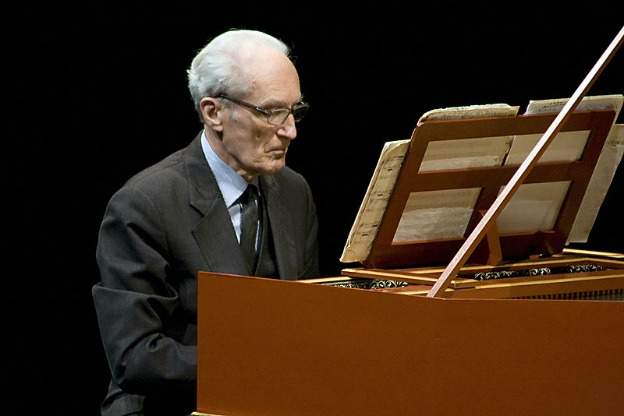
Last week, the world of early music saw the passing of an influential performer and researcher, Gustav Leonhardt.
He was one of a growing number of musicians during the middle of the 20th century who insisted on historical accuracy when performing early music. During his studies in Vienna, he spent a great deal of time copying manuscripts and treatises by hand for further study. Ideas such as different tuning for early instruments and limiting the size of an orchestra to allow for a more accurate performance were ideas that Leonhardt strongly believed in when he performed or conducted. He insisted on having an historical harpsichord for his own performances, and was influential in the ultimate resurrection of the instrument and the historical methodology of its construction.
His earliest recordings were the keyboard works of Johann Sebastian Bach, but the list would soon expand to include keyboard works of other Baroque composers such as Girolamo Frescobaldi, and Domenico Scarlatti among others. With his Leonhardt Consort, he performed and recorded even more Baroque chamber music, always taking care to be as historically accurate as possible. He even wished that his live performances of Baroque opera could be lit with oil lamps rather than electric lights. The Leonhardt Consort’s most important recordings were those in which he collaborated with the Concentus Musicus of Vienna to record all of Bach’s cantatas.
Leonhardt met Concentus Musicus’ director, Nikolaus Harnoncourt, during his studies in Vienna in the early 1950s, and Leonhardt would go on to teach some of the most influential early music performers today. Some of his former students include William Christie, Christopher Hogwood, Trevor Pinnock, Roger Norrington, Nicholas McGegan, and many others. Leonhardt taught at the Amsterdam Conservatory, in his native Holland, as well as the Vienna Academy of Music. He even taught at Harvard occasionally during the 1970s.
He continued performing as both a harpsichordist and organist until he announced his retirement in December 2011.









